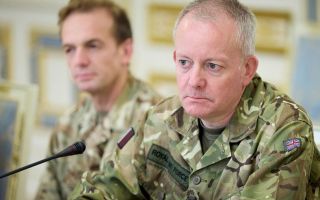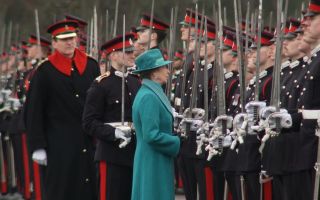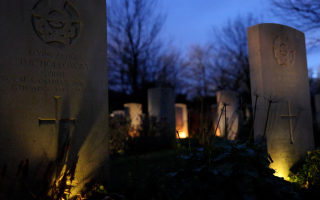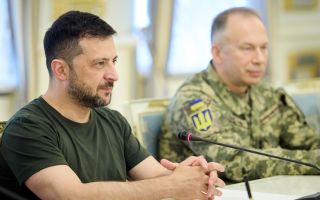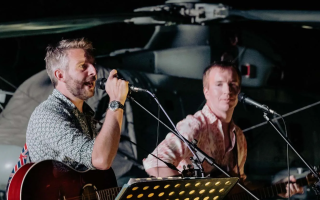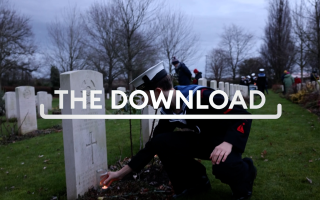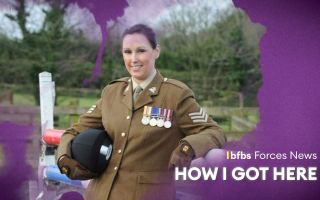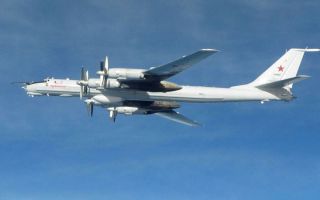Blood, bandages and great acting: Why senior medical officers played the casualty
When Exercise Apollo Refresh got moved last minute from Cyprus to the UK due to instability in the region, everyone piled in to make it happen.
HMS Drake offered to accommodate the 100 or so personnel involved and RNAS Yeovilton freed up its Merlin and Wildcat helicopters.
But there was one issue remaining. Who would play the casualties?
In Cyprus, local personnel normally play the role of an ejected pilot or a chef with appendicitis, roles that are so critical to the medic training.
But with the last-minute relocation, there was only one thing for it – the senior clinicians who'd been tutoring the trainee defence doctors would step in and play their patients.
The surgeon commanders and lieutenant colonels did each other's make-up and put in some outstanding performances, worthy of five-star reviews (in the local paper at least!)
"There's some tremendous acting. We're starting to think some of us are actually wasted as doctors in the military," Surgeon Commander Dan Hawkins, a Royal Navy GP Trainer, told BFBS Forces News.
"So maybe when some of us do hang up our stethoscopes and retire, there's a second career ready and waiting for us!"
I wandered up to Emergency Medicine Consultant Surgeon Commander Dave Potter, who has brown and purple face paint plastered across the right side of his head. A dribble of fake blood just skirting his temple.
"What happened to you?" I asked. "Banged my head," he replied.
"I've got to be confused, agitated and really annoying – so that'll require almost no acting at all!"
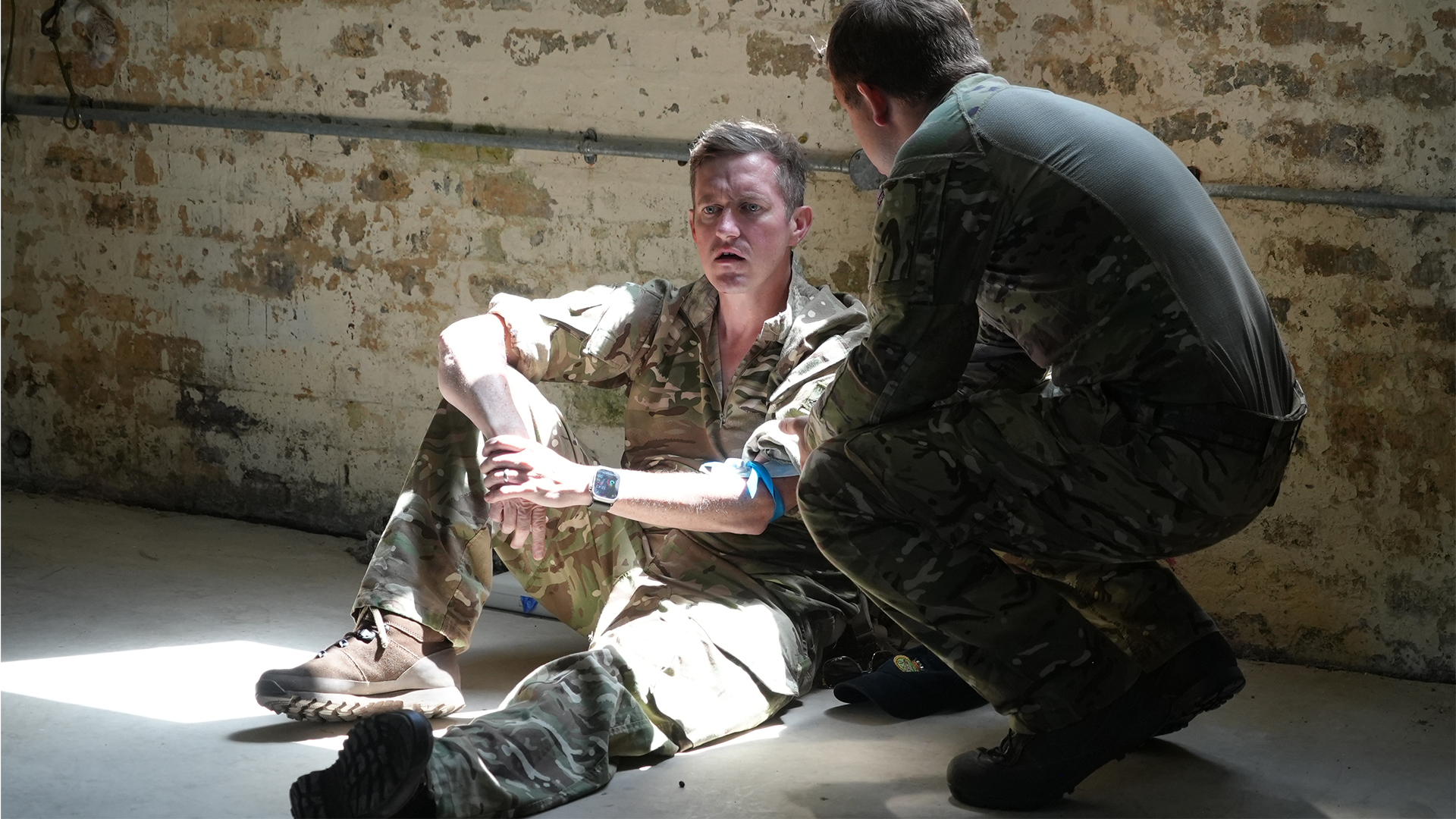
Exercise Director Lieutenant Colonel James Lyon explained the importance of establishing a good rapport with the patient.
"We often talk in medicine about how powerful the opportunity is to be a patient sometimes," he said.
"For doctors, something that we forget is that sometimes the most powerful intervention – aside from the obvious lifesaving ones – is the human connection.
"And it does have an effect. Not just psychological, but physiological. You can take that beat to communicate with someone that's frightened – to tell them what's going on – and it has a massive effect down the line."
The exercise itself was the final test for these trainee defence doctors. They are already qualified GPs – but this training teaches them how to operate in military environments.
They spent one day covering the maritime environment, working on board ships and submarines, one day on an airfield learning to operate on Merlins and Wildcats, and the final day was land-based, bringing together all that they had learned.
They had to deal with continuous scenarios from gunshot wounds to sepsis to anxious parents demanding antibiotics.
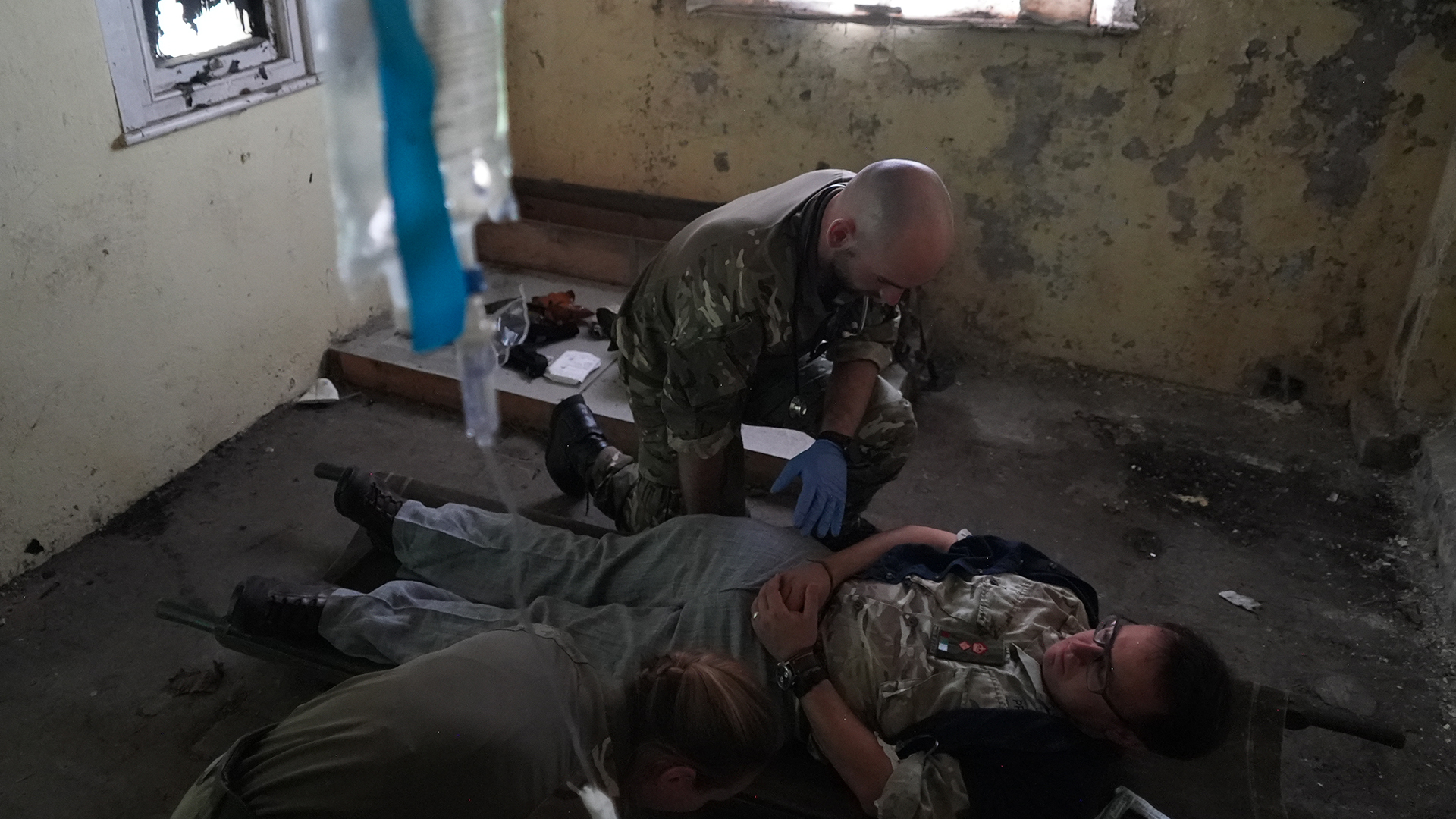
Military medical training today is different to the days of Iraq and Afghanistan.
Firstly, the types of injury. They're now looking less at lower body trauma from IEDs and more at blast injuries from drones above.
Hospitals are no longer places of safety – doctors and their improvised aid posts must now be hidden.
And whereas in previous wars, casualties would be stabilised and casevaced out of the country, now the medics have no idea how long care will be needed before extraction is possible.
"We would normally, in an NHS hospital, have a drip stand and a bed that goes up and down," says trainee defence doctor Flight Lieutenant James Barnes.
"We're now working with stretchers on the floors, and we're tying up cables that we can hang fluids from."
"It's been quite creative, but a little bit frightening sometimes too," agreed fellow trainee Flight Lieutenant Emily Liddiard.
"We're looking forward at operational landscapes where we don't really know what the picture's going to look like and what we're going to have, what resources.
"So working in a resource-limited environment has been quite thought-provoking and challenging, but also quite exciting."
Once this exercise is complete, the medics will be fully fledged Defence GPs.
They will head off to their respective units, with some being deployed overseas in just a few weeks.

